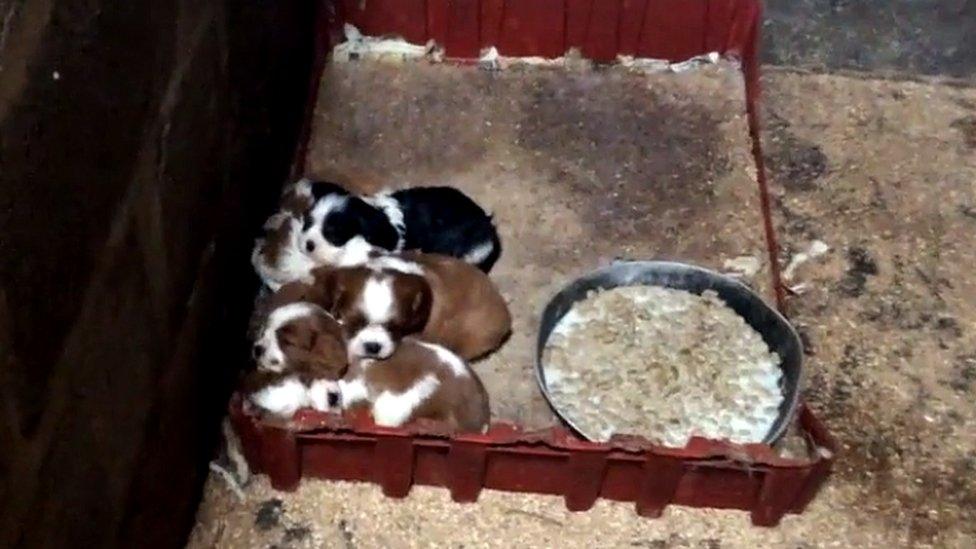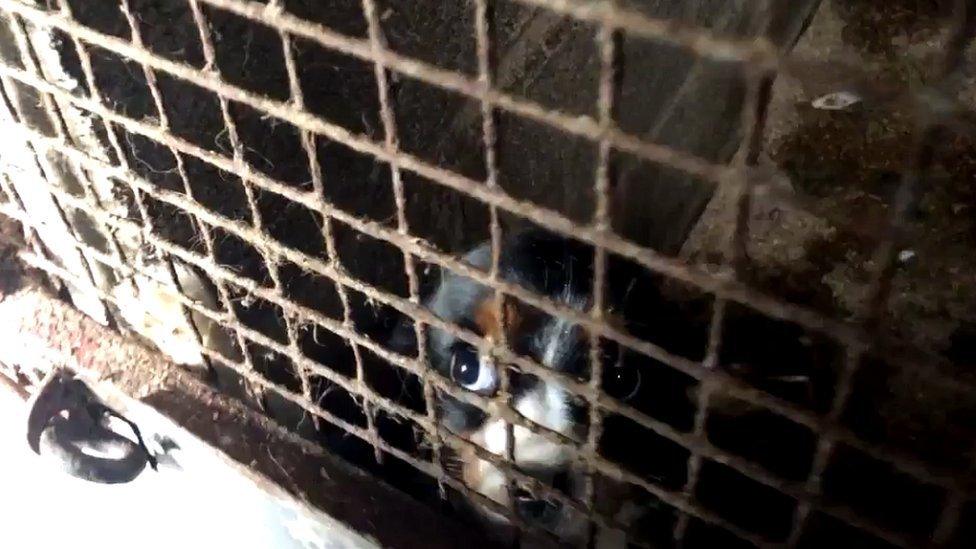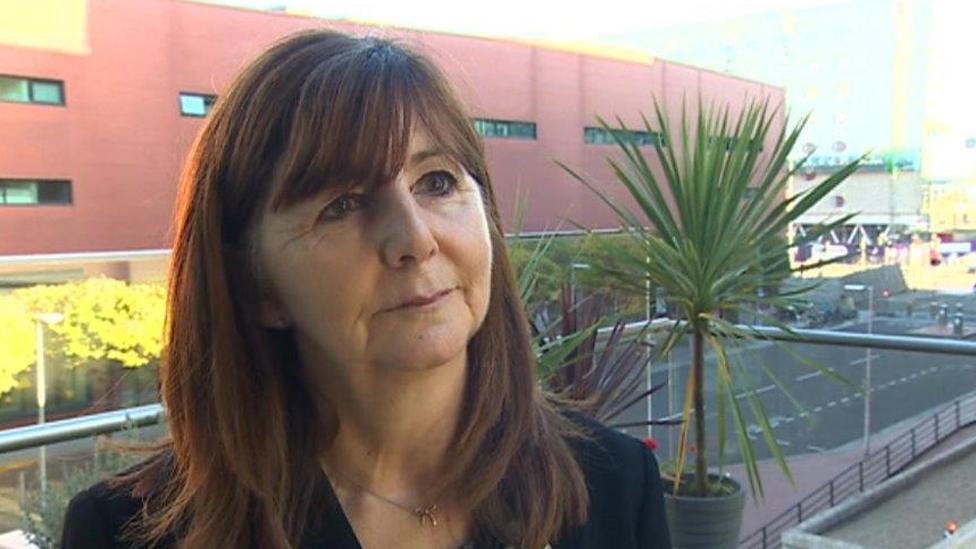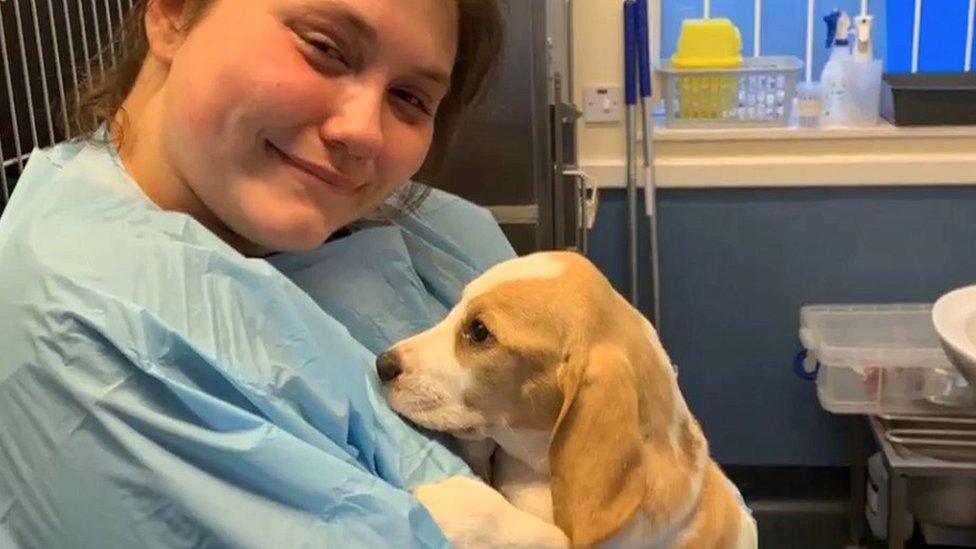Welsh puppy farm regulations to be toughened after exposé
- Published

Puppies huddled together at a Carmarthenshire puppy farm filmed by an undercover BBC reporter
Ministers have promised more cash for council inspections after calls for a major shake-up of puppy farm regulations.
Current rules do not ensure dogs have a good quality of life, a review by expert vets has found.
It follows undercover reporting by BBC Wales Investigates that found "filthy" conditions at licensed breeding sites.
Rural Affairs Minister Lesley Griffiths said she would implement many of the review's recommendations "urgently".
She ordered the probe following the BBC investigation, which prompted calls for vets to be investigated over their involvement in the Welsh puppy farm industry.
The review says the objectives of "a robust legislative and enforcement system are that breeding dogs and puppies should experience a good quality of life".
"The group found that the current combination of regulation, licensing conditions, guidelines and implementation are not meeting the objectives," it said.

BBC Wales Investigates found dogs in poor conditions during undercover filming
The expert panel found that a "potentially" large number of commercial breeding operations are run so they do not require a licence.
"A significant loophole is that any number of persons living or working at the same site could breed two litters each and run a breeding establishment between them whilst each remaining below the licensing threshold," it said.
Experts called for qualifying conditions for a licence to be applied regardless of whether breeding animals are kept at the same or different premises.
Known links exist between illegal dog breeding and organised criminal gangs, the report said.
But it found the current system "makes it very difficult for a puppy purchaser to recognise the difference between a legally or illegally unlicensed breeder".
Recommendations include:
The registration of all dog breeders should be considered.
Inspecting vets should be independent and should not inspect their own clients' premises - to combat a "perceived conflict of interest."
Further training for council inspectors, inspecting veterinary surgeons and private veterinary surgeons dealing with licensed breeding establishments
An urgent review of legislation and an immediate improvements to micro-chipping regulations
A minimum ratio of one staff member for 10 adult dogs - saying a one in 10 ratio does not give allow for proper exercise, enrichment and socialisation programmes needed for "good dog welfare".

Environment minister Lesley Griffiths said some councils were struggling to cope with the demands of enforcement
Ms Griffiths has already backed a ban on the sale of puppies and kittens through pet shops.
She said some councils were struggling to cope with the demands of enforcement, with dog breeding premises "not evenly distributed across Wales".
A "scoping project" will determine additional resources needed to "ensure consistent treatment of all licensed breeding establishments".
Once that is done, ministers will provide funding for a three-year pilot scheme for specialist training and "up-skilling of dedicated local authority staff".
"The combination of new regulations on pet sales and dedicated funding for enforcement and delivery of the breeding regulations, will result in lasting improvements to the welfare standards of puppies bred in Wales," she said.
- Published30 September 2019
